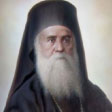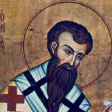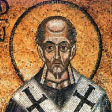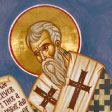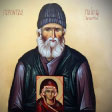Saint Basil the Great
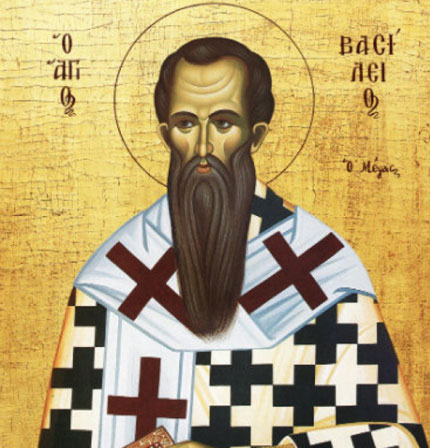
The Life and Ministry of Saint Basil the Great
Saint Basil the Great, one of the most revered figures in the history of the Church, stands as a beacon of theological brilliance, pastoral care, and ascetic rigor. As a pillar of the Cappadocian Fathers, alongside his brother Saint Gregory of Nyssa and close friend Saint Gregory of Nazianzus, Basil’s contributions shaped the foundations of Orthodox theology, monasticism, and liturgical life. His legacy endures not only through his writings but in the very heartbeat of the Church’s worship and social mission.
Early Life and Education
Saint Basil was born around 329 AD in the city of Caesarea, Cappadocia, into a devout Christian family renowned for its piety and service to the Church. His parents, Basil the Elder and Emmelia, instilled in him a love for God and the Scriptures. Several members of his family are honored as saints, including his grandmother Macrina the Elder and his sister Macrina the Younger, who became his spiritual guide and source of inspiration.
Basil received a robust education, first in Caesarea, then in Constantinople, and finally in Athens. In Athens, he studied rhetoric, philosophy, and the sciences, forming a close and enduring friendship with Gregory of Nazianzus. This period of intellectual pursuit was not merely an academic endeavor but laid the groundwork for his future theological contributions. Basil excelled in rhetoric, but the call of God soon redirected his gifts toward the service of the Church.
Upon returning to Cappadocia, Basil initially pursued a career as a rhetorician. However, the influence of his sister Macrina and his exposure to the lives of ascetics led him to abandon worldly ambitions. Baptized and fully committed to the ascetic life, Basil embarked on a journey across Egypt, Palestine, and Syria, where he encountered the flourishing monastic communities that would shape his vision for Christian living.
Monastic Vision and Writings
Saint Basil’s encounter with monasticism marked a turning point in his life. Upon returning to Cappadocia, he withdrew to the family estate in Pontus, where he established a monastic community. There, he crafted the foundational principles of Eastern Christian monasticism, emphasizing communal life, prayer, manual labor, and service to the poor.
His Asceticon, a collection of monastic rules, remains a cornerstone of Orthodox monastic practice. Unlike the solitary focus of some earlier desert fathers, Basil’s vision for monastic life was deeply communal. He believed that the pursuit of holiness was not an isolated endeavor but one nurtured through brotherly love, humility, and mutual service. This communal ideal reflected his broader understanding of the Church as the Body of Christ—each member supporting and sanctifying the other.
Pastoral Ministry and Episcopal Leadership
Basil’s growing reputation for holiness and theological acumen led to his ordination as a presbyter in 364 AD by Bishop Eusebius of Caesarea. His pastoral care extended beyond the pulpit, manifesting in tangible acts of charity. Basil was a fierce advocate for the poor and marginalized, establishing hospitals, orphanages, and homes for the elderly. These institutions, known collectively as the Basileias, exemplified his belief that the Church’s mission was to embody Christ’s love through service to those in need.
In 370 AD, Basil was elected Archbishop of Caesarea. His episcopate came at a time of great theological strife. The Arian controversy, which denied the full divinity of Christ, threatened to fracture the unity of the Church. As Archbishop, Basil emerged as a chief defender of Nicene orthodoxy, boldly confronting the Arian Emperor Valens and refuting heretical teachings with clarity and courage.
One of Basil’s most enduring theological contributions was his articulation of the doctrine of the Holy Trinity. In his seminal work On the Holy Spirit, Basil defended the divinity of the Holy Spirit against the Pneumatomachians, who denied the Spirit’s equality with the Father and the Son. Basil’s precise language—describing the Holy Spirit as sharing the same essence (homoousios) with the Father and Son—secured the Church’s understanding of the Trinity and influenced the development of the Nicene-Constantinopolitan Creed.
Defender of Orthodoxy
Basil’s commitment to the defense of the faith extended beyond theological treatises. His homilies and letters addressed the moral and spiritual challenges of his flock, calling them to repentance, humility, and steadfastness in the face of persecution. He spoke with the boldness of a prophet, unafraid to confront emperors and political leaders when their actions threatened the unity of the Church or oppressed the weak.
One notable episode occurred when Emperor Valens, an Arian sympathizer, attempted to impose his beliefs upon the Church in Cappadocia. When summoned before the imperial court, Basil’s unwavering response left a lasting impression: "You have no power over my faith. Threaten me with exile, and the earth is the Lord’s. Confiscate my goods, and you will find that I have nothing but these rags. Torture me, and my frail body will yield. Kill me, and I will be with Christ. I fear nothing but sin."
Such was the courage of Basil—rooted in the conviction that nothing could separate him from the love of God.
Liturgical and Theological Contributions
Saint Basil’s contributions to the Church’s liturgical life are profound. The Divine Liturgy of Saint Basil, celebrated during Great Lent and on select feast days, reflects the depth of his theological insight and pastoral sensitivity. His liturgical prayers emphasize God’s boundless mercy, the transformative power of the Eucharist, and the unity of the faithful in Christ’s Body.
Basil’s theological writings extend beyond polemics, offering profound reflections on creation, the nature of humanity, and the mystery of salvation. His Hexaemeron, a series of homilies on the six days of creation, blends scientific observation with spiritual exegesis, affirming the goodness of God’s creation while calling humanity to stewardship and reverence for the natural world.
Legacy and Canonization
Saint Basil reposed in the Lord on January 1, 379 AD, at the age of 49. Though his life was brief, his impact on the Church was immeasurable. The Church swiftly recognized him as a saint and one of the Three Holy Hierarchs, alongside Saint Gregory the Theologian and Saint John Chrysostom. His feast day is celebrated on January 1, and his influence continues to shape Orthodox theology, monasticism, and liturgy.
Spiritual Lessons from Saint Basil
The life of Saint Basil the Great offers timeless lessons for the faithful. His synthesis of theological rigor and pastoral care reminds us that true faith is not confined to the intellect but must manifest in love and service. Basil’s courage in defending the truth, even at great personal cost, calls us to unwavering fidelity to Christ in an age of moral and doctrinal confusion.
vAbove all, Basil’s life reflects the heart of the Gospel—a call to humility, compassion, and communion with God. In honoring Saint Basil, we are reminded that the pursuit of holiness lies in the union of prayer, service, and the ceaseless desire to ascend toward the living God. May his prayers and example continue to guide us on the path to salvation.

